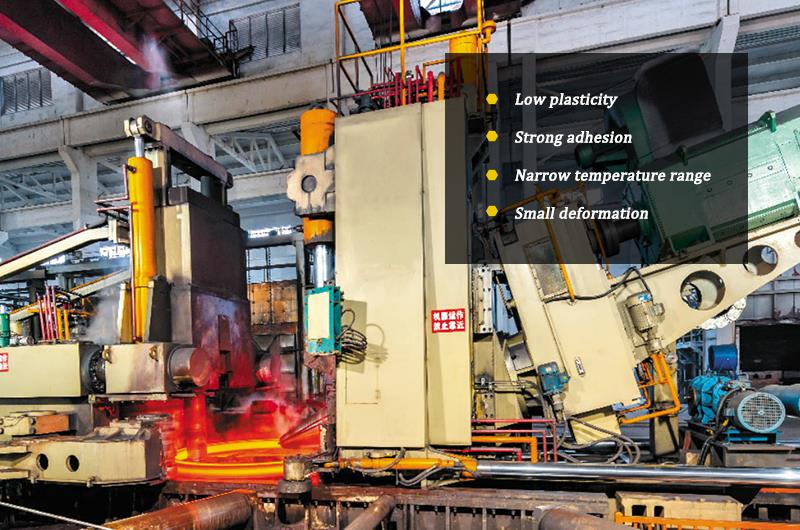1. The plasticity of Forged aluminum alloy parts is low. The plasticity of aluminum alloy is greatly affected by alloy composition and forging temperature, and the sensitivity of plasticity to deformation rate varies with the content of alloying elements. When the content of alloying elements increases, the plasticity of the aluminum alloy continues to decrease, which is sensitive to the deformation rate. The level has also improved. Most aluminum alloys are positively strain rate sensitive materials, i.e. the active stress decreases with decreasing deformation rate. Therefore, large-scale aluminum alloy forgings for aviation are usually formed by hydraulic or hydraulic presses, while small and medium-sized aluminum forgings can be manufactured with screws, presses or mechanical presses.

2. Strong adhesion of Forged aluminum alloy parts. Because aluminum and iron can be solid-solubilized, aluminum alloys often stick to the die during forging. It is generally believed that spindle oil can have a better smoothing effect. In recent years, American companies such as Acheson have also developed aluminum alloy smoothing agents suitable for industrial applications. There are also domestic companies that formulate oil-based or water-based smoothing agents, and the effect is very good.
3. The forging temperature range of Forged aluminum alloy parts is narrow. The forging temperature range of most aluminum alloys is within 150 °C, and some are even as high as 70 °C. Therefore, in the consumption of aluminum forgings, it is often necessary to adopt a variety of heating methods to ensure that the aluminum alloy has good forgeability. Especially for aerospace and military products that have strict requirements on product performance, aluminum and aluminum parts are usually processed into final shapes by isothermal forging.
4. The deformation of Forged aluminum alloy parts is small. Forged aluminum alloy parts usually do not allow small processes and large deformations to prevent coarse grains or cracks. Therefore, it is often necessary to reasonably allocate the total deformation. The billet process has a great influence on the final product forming effect. After repeated processes, the temperature of the workpiece is usually lower than the required forging temperature, so it needs to be reheated.

2. Strong adhesion of Forged aluminum alloy parts. Because aluminum and iron can be solid-solubilized, aluminum alloys often stick to the die during forging. It is generally believed that spindle oil can have a better smoothing effect. In recent years, American companies such as Acheson have also developed aluminum alloy smoothing agents suitable for industrial applications. There are also domestic companies that formulate oil-based or water-based smoothing agents, and the effect is very good.
3. The forging temperature range of Forged aluminum alloy parts is narrow. The forging temperature range of most aluminum alloys is within 150 °C, and some are even as high as 70 °C. Therefore, in the consumption of aluminum forgings, it is often necessary to adopt a variety of heating methods to ensure that the aluminum alloy has good forgeability. Especially for aerospace and military products that have strict requirements on product performance, aluminum and aluminum parts are usually processed into final shapes by isothermal forging.
4. The deformation of Forged aluminum alloy parts is small. Forged aluminum alloy parts usually do not allow small processes and large deformations to prevent coarse grains or cracks. Therefore, it is often necessary to reasonably allocate the total deformation. The billet process has a great influence on the final product forming effect. After repeated processes, the temperature of the workpiece is usually lower than the required forging temperature, so it needs to be reheated.








